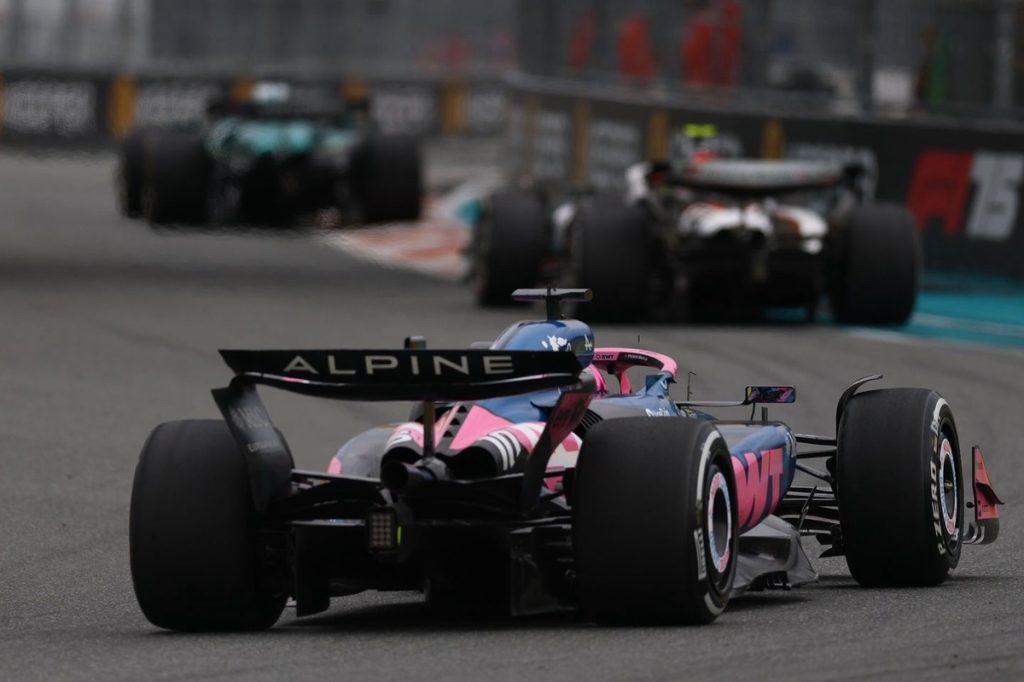Sure! Here’s a paraphrased version of the article structured with paragraphs and headings in HTML format:
<div>
<h3>Turbcharged Hybrid Power Units and Mercedes' Dominance</h3>
<p>Since Formula 1 transitioned to turbocharged hybrid power units in 2014, Mercedes has invested more time and resources into its project than any other manufacturer. This led to nearly five years of unparalleled success, while competitors struggled to keep up—particularly Renault, which arguably never caught up at all.</p>
<h3>Concerns Over Future Power Unit Regulations</h3>
<p>The looming change to new power units that emphasize greater electrical deployment resembles the situation in 2014, causing anxiety among several team principals. The tension surrounding this issue has been palpable in F1 for months, evident in trends like the fleeting interest in bringing back V10 engines and Alpine’s decision to switch from Renault power units to Mercedes ones.</p>
<h3>Audi's Engine Program Uncertainty</h3>
<p>Recently, another management change occurred at Audi, which is operating its F1 engine program as its own subsidiary. Engine chief Adam Baker, who previously spent over ten years working on racing powertrains at BMW and Cosworth, was dismissed just as discussions about the viability of Audi’s engine program began to surface. CEO Gernot Dollner even attended a critical meeting with F1 stakeholders before the Bahrain Grand Prix.</p>
<h3>Exploring Catch-Up Provisions</h3>
<p>Dollner has been a strong advocate for incorporating greater catch-up provisions in the 2026 regulations to support underperforming teams. While most stakeholders agree, Mercedes—considered the frontrunner—differed on the issue. The key challenge is implementing such provisions within existing financial limitations in the sport.</p>
<h3>Past Imbalances and Future Strategies</h3>
<p>As Nikolas Tombazis, FIA's single-seater director, mentioned, historical imbalances have typically been remedied through additional expenditure. However, this approach is complicated by the introduction of cost caps. Adjustments made back in 2022 served as placeholders and are now under review as discussions continue about the specific needs for underperforming teams to enhance their development capabilities.</p>
<h3>Lessons From Honda's Journey</h3>
<p>The case of Honda illustrates the difficulties newcomers face in creating competitive hybrid power units. After years of struggle, they eventually hit their stride, especially after separating from McLaren and forming a successful partnership with Red Bull. This success aligns with their interests as the 2026 rules offer greater electrification opportunities.</p>
<h3>Future Considerations for F1 Regulations</h3>
<p>During a recent F1 Commission meeting, all parties agreed on the principle of a catch-up mechanism that will help underperformers improve. A new working group has been tasked with developing detailed proposals, likely involving a sliding scale for testing and budget cap concessions based on performance and reliability differences. However, the goal remains challenging, as balancing cost reductions with competitive ambition presents ongoing hurdles.</p>
</div>This version retains the core information of the original article while reorganizing it into coherent paragraphs with appropriate headings.



